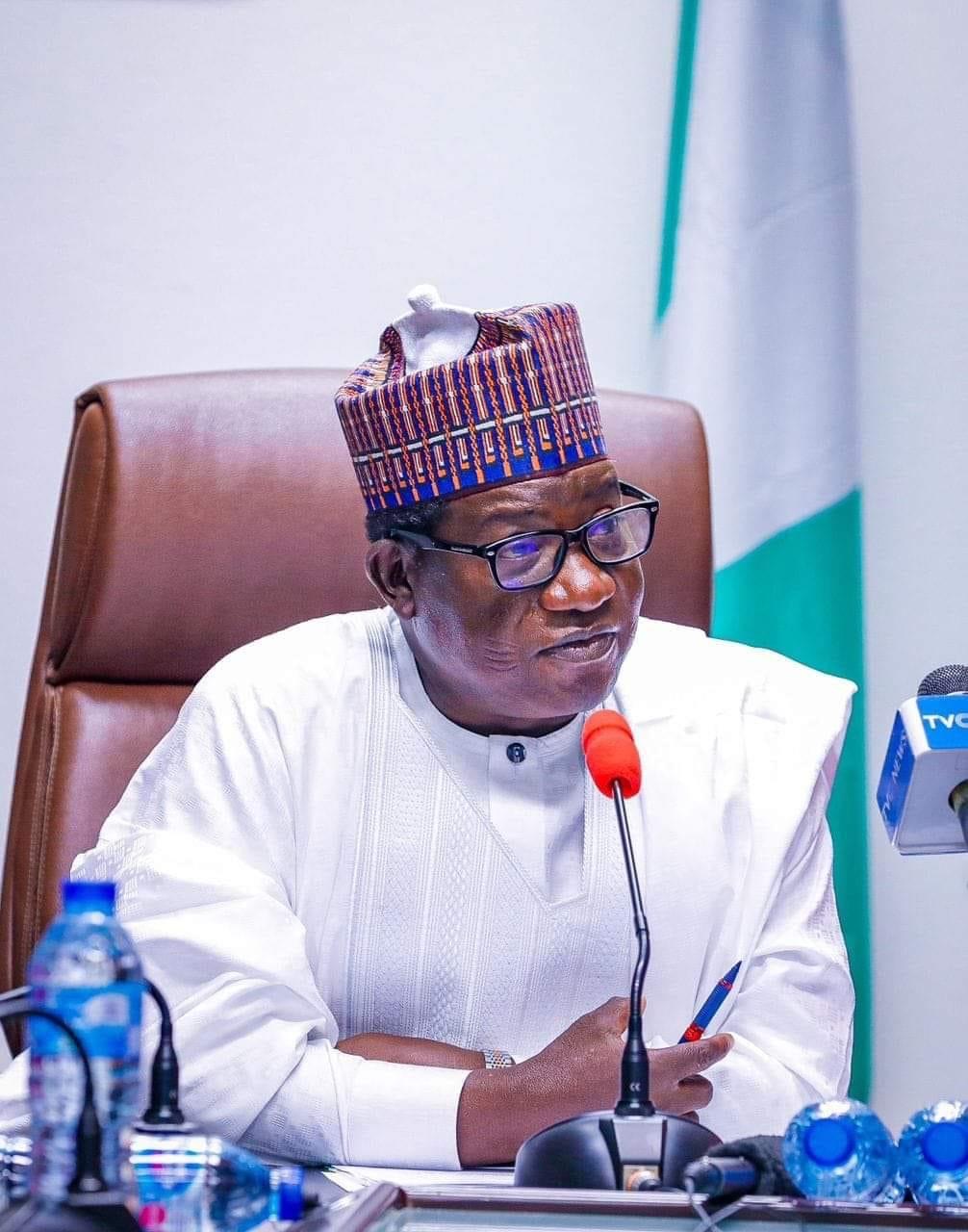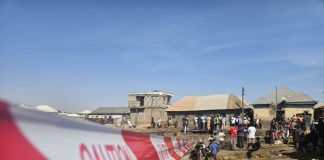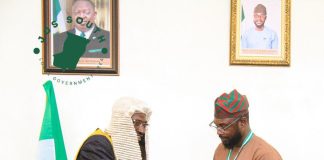Former Governor of Plateau State, Sen Simon Lalong, his former Chief of Staff, Rep John Dafaan, and other beneficiaries of the Court of Appeal’s erroneous decisions, which sacked all National Assembly and House of Assembly members elected on the Peoples Democratic Party (PDP) platform, face losing their seats in one fell swoop following last Friday’s Supreme Court decision, which upheld Gov Caleb Muftfwang’s election.
According to Clusterchannel, the unhappy PDP lawmakers are considering appealing for a collective legal review of their cases before the Supreme Court in order to retrieve their stolen mandates.
They are said to be considering jointly filing a ‘Petition for a Writ of Certiorari’, which is a court process that is initiated to seek judicial review of a controversial decision of a lower court that is considered a perverse and glaring miscarriage of justice, and which the Supreme Court, as a policy Court, is likely to consider and review all wrongfully delivered judgements of the Court of Appeal.
Legal sources acquainted with the situation said that the process is trite law, as the ‘Writ of Certiorari’ is a formal order given by a higher court to a subordinate court, instructing the court below to submit the full record of a specific case for review, if the superior court deems there is compelling reason to do so.
This legal procedure allows the higher court to scrutinise the judgement and potentially overturn the lower court’s decision, ensuring uniformity and consistency in the interpretation and application of the law, particularly in the case of the sacked lawmakers, which has brought so much opprobrium to the Nigerian judiciary.
They enumerated four causes or conditions that may prompt the Supreme Court to exercise its discretionary jurisdiction to grant the Writ of Certiorari, as follows:
1. If there were conflicting and contradictory judgments or disagreements among the lower court’s judges, like in the Plateau cases.
2. If there were reversible legal errors in the lower court’s judgment.
3. If the outcome of the judgments triggered issues of serious national importance or wide application.
4. If there were no right to appeal the judgments like in the cases in question, where the Court of Appeal is the final determinant of the cases.
A senior lawyer, who confirmed the development but preferred not to be named due to the confidentiality of the move, stated that if the Supreme Court grants the Writ of Certiorari application, over which he claims the Court is officious functus (in accordance with its powers as provided in Section 6 of the 1999 Constitution, as amended), it will review the cases and overturn the lawmakers’ dismissal.
He stated that the supreme court may also probe and expose the perpetrators, and that the National Judicial Council has already taken judicial note of the mess and humiliation generated by the Court of Appeal Panel and Plateau Election Tribunal instances.
According to him, many heads are likely to roll in the judiciary, particularly at the Court of Appeal, in order to save the judiciary’s tarnished image and serve as a deterrent to future abuses by lower court judges, as well as ensuring judicial accountability at all levels of the third arm of government.
Reacting to the development, Prof Elias Lamle of the Centre for Conflict Management and Peace Studies, University of Jos, concurred, stressing that the Supreme Court’s judgment that the Appeal Court ruling constituted an abuse of court processes underscored the urgent need for corrective measures.
He said: “In instances of abuse, it is imperative to rectify the judicial process that was compromised. In this context, the judgments delivered at the Appeal Court, where the abuse of the judiciary process occurred, demand a thorough review.
“The application of the writ of certiorari to the cases of the sacked PDP members of the Federal and State houses of Senate, Representatives, and Houses of Assembly in Plateau State is crucial to restoring justice and rectifying the abuse.”
Also commenting on the issue, Mr Realwan Okpanachi, an Abuja-based legal practitioner, however, expressed his reservation over the prospect of the applications succeeding in getting any reprieve from the Supreme Court, if they go ahead with what he described as a “wild goose chase for justice” at the apex court.
He said: “I don’t think that the Supreme Court has jurisdiction to entertain such a petition because the Court of Appeal is the final arbiter in their case.
“Besides, the case is statute barred, so the time to hear and dispose of it has elapsed, for which reason the Supreme Court is further deprived of jurisdiction.”
One of the aggrieved lawmakers, who spoke on the condition of anonymity because he was not authorized by his colleagues to let the cat out of the bag, confirmed that they were actually exploring the option of filing the Petition for the Writ of Certiorari.
He said: “We are still exploring that option. We have to do it because posterity will not forgive us for not fighting the monumental injustice done to us by the Court of Appeal justices and their political collaborators.
“Even if we don’t succeed, at least that will engender action from the NJC, which l understand is already taking judicial notice of our cases and is likely going to sanction the culprits in order to sanitize the terribly battered image of the judiciary by them.”
Meanwhile, the political storm that has hit Plateau seems to be far from receding as it was learned that subterranean moves are ongoing to recall all the APC lawmakers of the State and National Assembly, who were imposed on the people by the Court of Appeal.
Sources said that some stakeholders, mostly from the ruling PDP, are strategizing, working round the clock and leaving no stone unturned to ensure that the recall agenda, which will come to light anytime from now, is carried out seamlessly to achieve the desired result over the next six months.
Already, the Speaker of the Plateau State House of Assembly, Gabriel Dewan, has given the embattled Court of Appeal ordered APC lawmakers the leper’s treatment by declaring that he would not grant recognition for them, stressing that he would only recognize eight members of the house out of the 24-member legislature.







